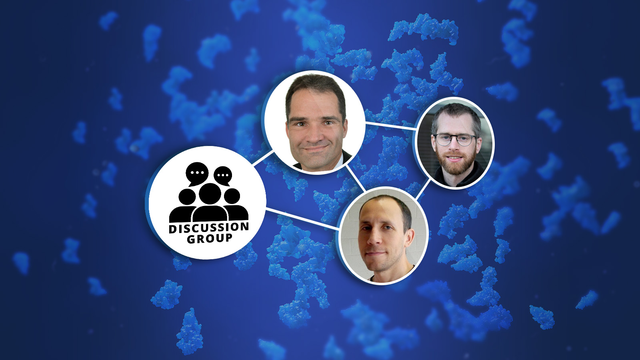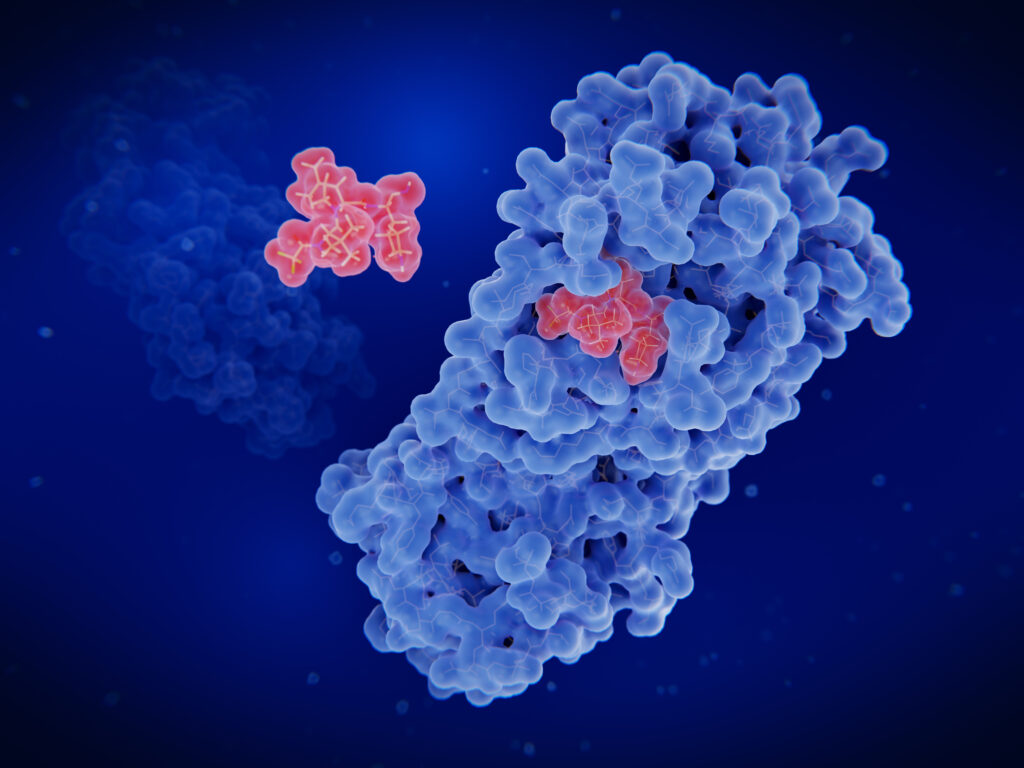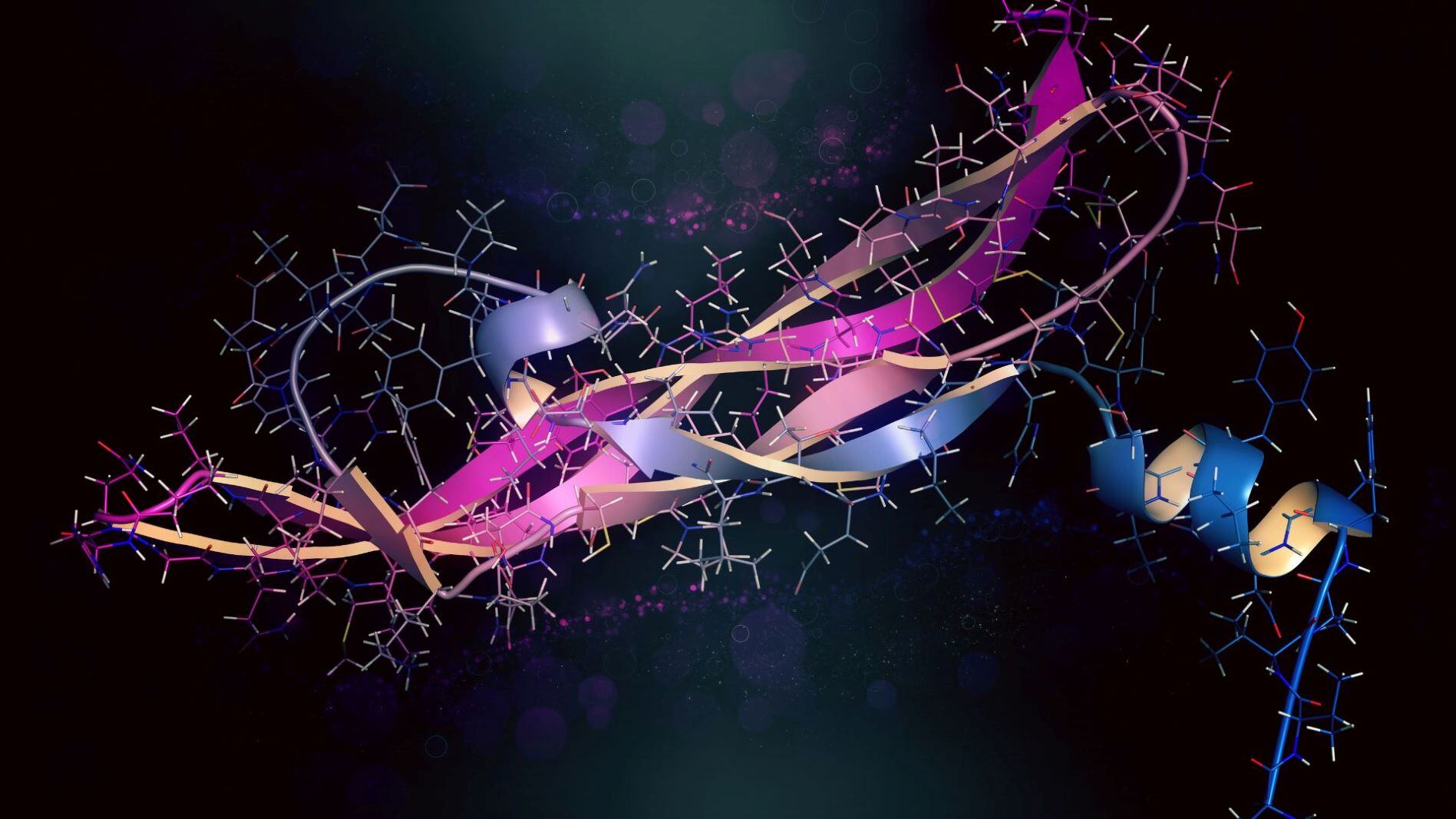Protein Degradation – Discussion Group Report

This November, our Discovery Series discussion group focused on protein degradation’s current uses and potential. Oxford Global’s discussion groups bring together a select group of 15-20 key industry leaders for approximately one hour for in-depth knowledge sharing and conversation.
Protein degradation is the process by which proteins are naturally destroyed in a cell to maintain protein homeostasis. The body is constantly creating and reconstructing proteins while also ellinating or “degrading” those that have lost or mutated functionality. Many diseases, including cancer can occur when specific proteins are not degraded, leading to an accumulation of faulty proteins. Targeted protein degradation allows medicine to intervene in this process, using the power of our own cells to initiate the degradation process, even in new classes of proteins that were considered impossible to target
Targeted protein degradation was awarded and named one of the top emerging technologies in 2021, along with technologies for COVID-19 vaccines. There is an incredibly diverse range of targets for protein degradation within the literature, indicating this technology may pick up as much speed and global impact as RNA-based COVID vaccines. The challenge is to demonstrate clinical applicability and efficacy.
Leading this month’s group was Markus Schade (Senior Scientist, AstraZeneca). Markus was supported by a panel of highly experienced industry experts, including Joanne Wayne (Senior Scientist, Vernalis), Benedict Cross (Chief Technology Officer, Phoremost) and Gustavo Gutierrez (Principal Scientist, Galapagos).
Recent Developments
Progress in protein degradation has accelerated in the past few years, and 2021 saw several breakthroughs. Efforts to target STAT3, however, have proven to be especially challenging, perhaps owing to the fact that transcription factors lack targetable enzymatic activity and have historically been considered “undruggable”. Small molecule inhibitors targeting STAT3 have been limited by insufficient selectivity and potency. More recently, therapeutic approaches that selectively target STAT3 protein for degradation have been developed, offering novel strategies that do not rely on inhibition of upstream pathways or direct competitive inhibition of the STAT3 protein.
In March 2021, Kymera Therapeutics announced in a press release that the first dose of KT-474, a first-in-class IRAK4 protein degrader to treat immune-inflammatory diseases, had been administered to a patient in phase 1 trials. Gustavo Gutierrez commented during the discussion that this marks an important step in the industry and that it challenges the “idea that PROTACS can only be used for oncology. Kymera is addressing that and showing that other applications and other diseases can be tackled with the same technology.”

Novel E3 Ligases
PROTAC drugs have now been designed to recruit an array repertoire of E3 ligases, including MDM2, CRBN, SCF?-TRCP, VHL, and IAP. Despite these advancements, there remains a huge number of E3 ubiquitin ligases that are not fully understood or utilized.
"Is there merit in issuing completely new E3 ligases as potential degradation mechanisms?"
Govindan Subramanian
Govindan Subramanian queried the panel on whether there is “merit in issuing completely new E3 ligases as potential degradation mechanisms” or should efforts be focused on improving the current library.
The majority of the group was in favour of exploring novel ligases. Joanne Wayne shared her view; “I think it depends on what you want to degrade because CRBN and VHL will not necessarily be available for every single protein either within or without the cell. There is certainly a very strong case for exploring novel ligases because you’re not going to be able to degrade everything with those two.” Overall, the group agreed that there is a great deal of value in novel E3 ligases as “you are going to need them for different targets within the cell”.
Marlon Cowart adds that “with kinases, enzyme inhibitors, sustained protease inhibitors, the typical classes - if you've seen one kind, you've sort of seen them all. If you get some hits, you get many hits, and there's a whole field of knowledge. But if you know something about tryptophan pockets and cereblon that doesn't tell you anything about any other E3. They're just completely different.”
Conclusion:
The discussion group concluded with a brief exploration of multipass membrane protein degradation and oral administration.
At Oxford Global, we could not have been more pleased with the turnout for our first protein degradation discussion group. The conversation was engaging, the debate stimulating, and the event provided the perfect setting for exchanging ideas.
A second protein degradation group is now scheduled for 29th April 2022 at 3PM GMT which you can sign up for here. This group will focus on preclinical oral PROTACS, new PROTAC targets and targeting drug-resistant mutants. You can also learn more about Oxford Global’s discovery discussion groups and our future events here.






